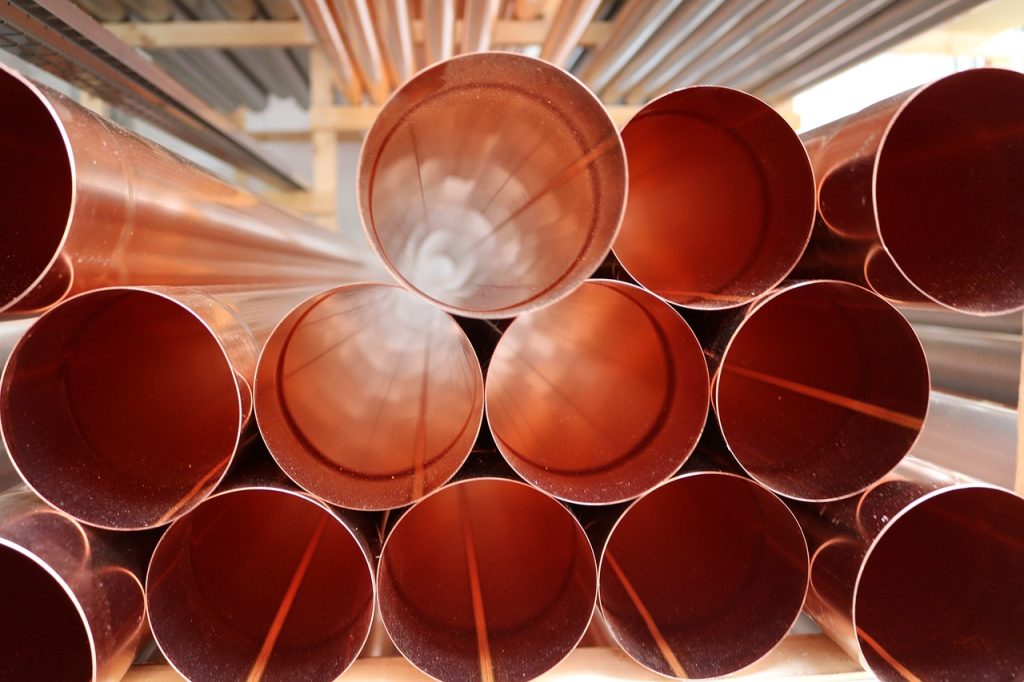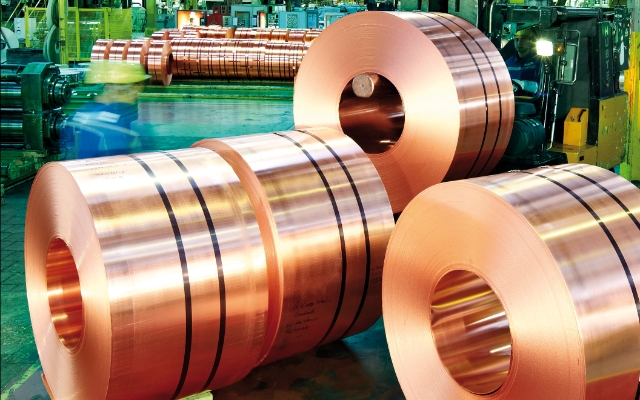Discovering the Health And Wellness Conveniences of Using Copper Products in Everyday Life
Discovering the Health And Wellness Conveniences of Using Copper Products in Everyday Life
Blog Article
Discovering the Diverse Applications of Copper Products in Modern Industries
Copper items have established themselves as essential parts across a myriad of modern industries, mainly as a result of their impressive conductivity, malleability, and resistance to deterioration. From enhancing the efficiency of electrical systems to playing an important role in renewable resource technologies, the adaptability of copper appears. Its recyclability settings it as a lasting option in production and electronics. As markets progressively focus on development and sustainability, the diverse applications of copper require a closer exam, specifically regarding their prospective effect on future technological improvements and ecological methods.
Electrical Applications of Copper
Copper is a crucial material in the electric industry, making up around 60% of the overall demand for non-ferrous metals internationally - Copper Products. Its remarkable electric conductivity, which is almost two times that of light weight aluminum, makes it the preferred option for a wide variety of electrical applications. From wiring systems in residential and commercial structures to high-voltage power transmission lines, copper makes sure effectiveness and dependability in electrical power distribution
In enhancement to electrical wiring, copper is integral to the manufacturing of electrical components such as generators, electric motors, and transformers. These components utilize copper's thermal conductivity and malleability, essential for warmth dissipation and effective performance. Furthermore, copper's resistance to corrosion boosts the lifespan and resilience of electric systems, making it an affordable solution in the long-term.
The growth of renewable resource resources, such as solar and wind power, has actually further boosted the need for copper in electric applications. As industries shift towards sustainable energy solutions, copper's role comes to be much more important. Overall, the flexibility and performance features of copper solidify its standing as a foundation product within the electric industry, driving technology and effectiveness throughout various applications.
Pipes and Piping Solutions
In contemporary pipes systems, the choice of products significantly affects both functionality and durability. Copper has emerged as a favored choice due to its distinct buildings, including rust resistance and antimicrobial attributes. These attributes make certain that copper piping continues to be resilient and secure for transferring drinkable water, an essential factor to consider in property and business applications.
One of the essential advantages of copper in pipes is its ability to withstand high temperatures and pressures, making it ideal for a range of applications, from warm water systems to heating and cooling networks. Additionally, copper's adaptability permits simpler installment in intricate piping layouts, minimizing the risk of leaks and failings.
Another noteworthy benefit is copper's long life expectancy, typically surpassing 50 years with appropriate maintenance. This longevity not just decreases substitute expenses however also contributes to sustainable practices by lowering waste. Copper's recyclability straightens with modern ecological requirements, promoting a circular economic climate within the plumbing industry.
Copper in Renewable Resource
The convenience of copper prolongs beyond plumbing applications, playing an important function in the renewable resource market. Its superb electric and thermal conductivity makes it a necessary material in the production and distribution of sustainable energy sources, particularly solar and wind power. In photovoltaic panels, copper is used in photovoltaic or pv cells and circuitry, facilitating efficient power conversion and transmission. Its resistance to corrosion makes sure long-lasting performance, which is critical for making best use of power outcome in time.

Moreover, as the international need for electrical cars (EVs) increases, copper's duty in battery systems and billing framework ends up being even a lot more substantial. The product's capacity to perform power successfully is integral to the performance of EV batteries, boosting array and charging rate.
Copper's Duty in Electronic devices
Electronic devices making relies heavily on copper's outstanding properties, specifically its high electrical conductivity and thermal performance. These features make copper a suitable choice for a large range of electronic components, consisting of adapters, circuit boards, and wiring. The steel's ability to efficiently send electric signals makes certain very little energy loss, which is crucial in high-performance see this here digital devices.
Furthermore, copper's thermal conductivity plays a considerable role in warmth dissipation, shielding delicate elements from overheating. This is especially essential in modern-day electronics, where portable styles lead to raised warmth generation. Copper is likewise preferred for its malleability and ductility, enabling it to be conveniently shaped right into intricate designs that fulfill the demands of innovative electronic applications.
With the rise of consumer electronic devices, telecoms, and electrical vehicles, the demand for copper in the electronics market proceeds to grow. Thus, copper stays a foundation product in the ever-expanding area of electronic devices.
Innovative Uses in Manufacturing

One notable application remains in additive manufacturing, where copper-based products are utilized in 3D printing procedures. This enables for the creation of light-weight components and intricate geometries, especially in the aerospace and automotive fields. Furthermore, copper's thermal conductivity makes it an ideal selection for heat exchangers, boosting efficiency in commercial cooling systems.
Additionally, the rise of wise manufacturing has seen the unification of copper in IoT gadgets, where its conductive capacities support innovative picking up modern technologies. In the world of sustainable energy, copper is critical in the manufacturing of photovoltaic panels and wind generators, facilitating a lot more reliable energy conversion and circulation.
As sectors pursue sustainability and advancement, copper's adaptability and efficiency proceed to position it as a critical product, driving innovations in manufacturing and adding to the growth of smarter, a lot more effective items.
Final Thought
In summary, copper products show amazing versatility across different modern sectors. Copper Products. Their remarkable conductivity enhances electric applications, while rust resistance makes sure reliability in plumbing. The indispensable function of copper in renewable resource and its necessary feature in electronic devices highlight its relevance ahead of time lasting practices. Additionally, cutting-edge usages in making emphasize copper's versatility and sustaining significance. Jointly, these applications highlight copper's essential contribution to technological progress and industrial efficiency in modern culture.
From enhancing the performance of electric systems to playing a critical function in sustainable power technologies, the flexibility of copper is apparent. As sectors progressively focus on innovation and sustainability, the varied applications of copper require a closer evaluation, specifically regarding their prospective effect on future technical developments this and environmental practices.
The growth of sustainable energy resources, such as solar and wind power, has actually further increased the demand for copper in electric applications. Generally, the flexibility and efficiency features of copper strengthen its status as a cornerstone material within the electric industry, driving weblink advancement and performance throughout different applications.
The adaptability of copper extends past pipes applications, playing an essential role in the renewable power industry.
Report this page